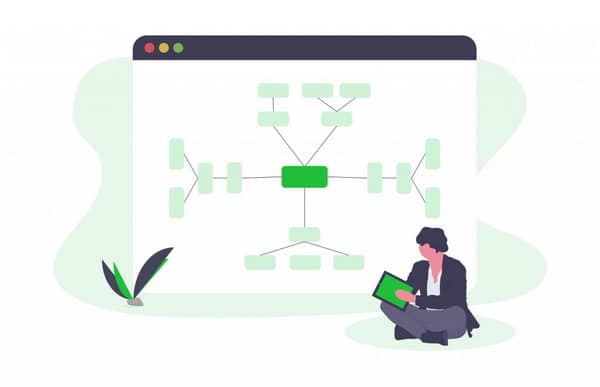New technologies and digitalization are being introduced in all modern industries, even such conservative ones as housing construction.

The need for changes is dictated not only by the needs of customers who want a quick and convenient service, as well as easy access to information, but also by global market changes: increased competition, tightened legislative regulation.
We tell you what technologies will change the market for new buildings in the coming years.
New Construction Technology Trends
BIM technology
BIM-technologies in building (Building Information Modeling) is an information modeling of the object’s life cycles, built on the basis of integrated data processing on architectural, technological, technological, economic and other information about the building with all the relationships and dependencies.
The main feature of the technology is that the construction object is considered as a whole: a change in one parameter entails an automatic change in the elements and objects associated with it, including drawings, visualization, specifications and implementation schedule.
It is worth noting that BIM modeling is now mandatory for the implementation of state orders, and since 2022 this requirement will affect all contracts of companies with state participation. The Ministry of Construction also does not exclude that it will oblige private developers to create digital copies of objects from July 2020.
The use of modeling technology in the implementation of residential projects will first of all help developers themselves to increase efficiency and save money – the design time and the time required to coordinate and develop documentation will be reduced.
A digital copy of the object can be successfully used in the implementation of related social and infrastructure projects, as well as help integrate ecosystems such as the “smart city”.
IoT Technologies and Construction Control
One of the main steps towards optimizing construction processes and increasing efficiency will be the introduction of IoT technologies – the Internet of things.
The Internet of things is the concept of a computer network of physical objects equipped with built-in technologies for interaction with each other or with the external environment, which allows them to collect, analyze and transmit data among themselves using software and technical devices.
A similar technology in the construction industry is a combination of devices and sensors within the same platform, which monitor and analyze all construction processes in real time. This approach allows us to reduce not only the time of work and their complexity, but also their cost.
Special attention will be paid to control. Already, large companies are using drones, GPS devices and all kinds of scanners in order to comply with plans, the speed of construction of houses and the corresponding quality. Cross-cutting analytics will also affect the physical work of personnel at the construction site.
Already, large developers are using drones, GPS devices and all kinds of scanners in order to provide control over construction
In addition, the direction of cost engineering is developing, which allows you to get a resource estimate for a project when loading an existing BIM model into a special program.
“Smart home” and “smart city”
If the “smart home” allows residents to manage the systems of their apartments from a smartphone or tablet, then the “smart city” covers the creation of an optimal ecosystem on a quarterly, microdistrict, district or even city scale.
“Smart House”
Now the mass construction of houses with “smart” apartments has not yet begun, but in the next few years it will be almost impossible to imagine housing without such a function. Residents of the “smart house” can easily manage all the systems of their apartments (from microclimate settings to lighting), communicate with the management company, track charges, pay for utilities and much more.
From the point of view of developers, the introduction of such technologies is a competitive advantage.
Residents of the “smart home” can easily manage all the systems of their apartments
“Smart city”
At the same time, the Smart City project is a government initiative aimed at improving the competitiveness of Russian cities, creating an effective urban management system, and creating safe and comfortable living conditions for citizens. Its implementation is carried out as part of the national project “Housing and Urban Environment” and the national program “Digital Economy”.
Smart City is the implementation of advanced digital and engineering solutions in urban and municipal infrastructure. The project involves the dissemination of technologies that will be used not only by municipal services and city authorities, but also by developers.
Online Services and Aggregators
To choose and book an apartment in a new building , approve a mortgage, buy insurance, leave an application in the UK – all this can already be done in one click, without leaving home. Online services and aggregators help the client and the seller / bank / service provider find each other without unnecessary effort, time and money.
At the moment, such platforms are not ubiquitous, but their presence will only expand.
Online services and aggregators will become even more popular
The introduction and application of new technological products will increase the potential of the housing construction industry and will become useful for both developers and apartment buyers.
